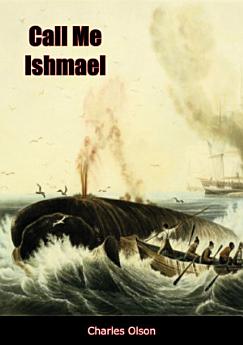Call Me Ishmael
About this ebook
“Not only important, but apocalyptic.”—New York Herald Tribune
“One of the most stimulating essays ever written on Moby-Dick, and for that matter on any piece of literature, and the forces behind it.”—San Francisco Chronicle
“Olson has been a tireless student of Melville and every Melville lover owes him a debt for his Scotland Yard pertinacity in getting on the trail of Melville’s dispersed library.”—Lewis Mumford, New York Times
“Records, often brilliantly, one way of taking the most extraordinary of American books.”—W. E. Bezanson, New England Quarterly
“The most important contribution to Melville criticism since Raymond Weaver’s pioneering contribution in 1921.”—George Mayberry, New Republic
About the author
Charles Olson (1910-1970) was an American author and poet. He was an influential figure in the Black Mountain school of the 1950s, a circle of experimental poets that included Robert Duncan, Robert Creeley, and Edward Dorn. Born on December 17, 1910, to Karl Joseph and Mary Hines Olson, and raised in Worcester, Massachusetts, he was educated at Wesleyan University and Harvard, where he studied American civilization. During the Second World War, he worked for the Democratic Party and for the Office of War information as assistant chief of the Foreign Language Division. His first book, Call Me Ishmael, a study of Mellville’s Moby-Dick, was published in 1947, and his next book, The Mayan Letters (1953), comprises a collection of letters written to his protégé Robert Creeley from Mexico, where he was studying Mayan hieroglyphics. His influential manifesto, “Projective Verse,” was published in pamphlet form in 1950 and then quoted in William Carlos Williams’ Autobiography (1951). He also started writing poetry, including The Kingfishers, In Cold Hell, and Thicket (1953). The Distances, his second collection, was published in 1960. In 1951, Olson succeeded the artist Josef Albers as rector of Black Mountain College, North Carolina, and remained there until it closed in 1956. He taught again at the State University of New York, Buffalo (1963-1965), but later settled in Gloucester, Massachusetts. He devoted most of his time and energy in subsequent years to The Maximus Poems, which begun in 1950 as a sequence of verse letters to his friend Vincent Ferrini. The first volume was published in 1960, followed by the second volume, The Maximus Poems, IV, V, VI, in 1968. The unfinished final volume, The Maximus Poems, Volume III, was published posthumously in 1975. Olson died in New York on January 10, 1970, aged 59.








